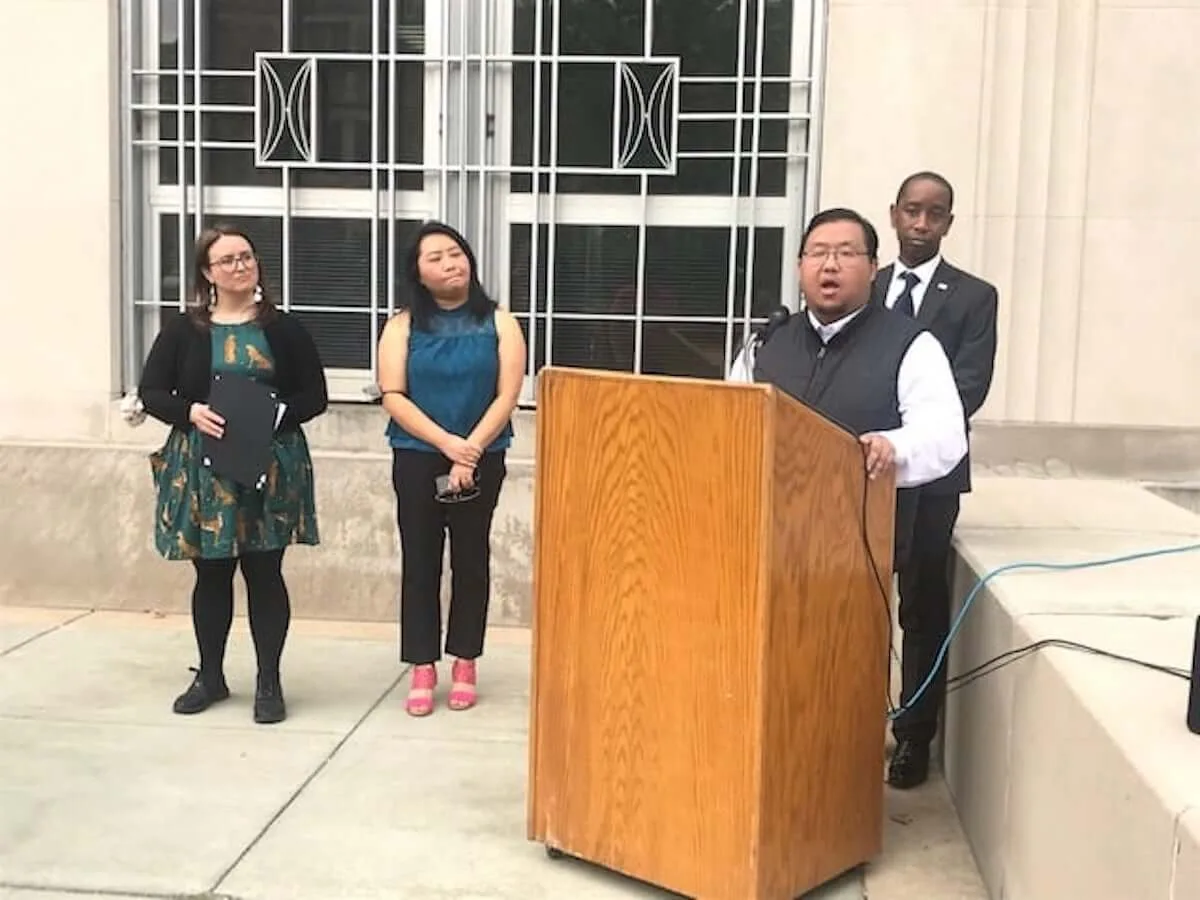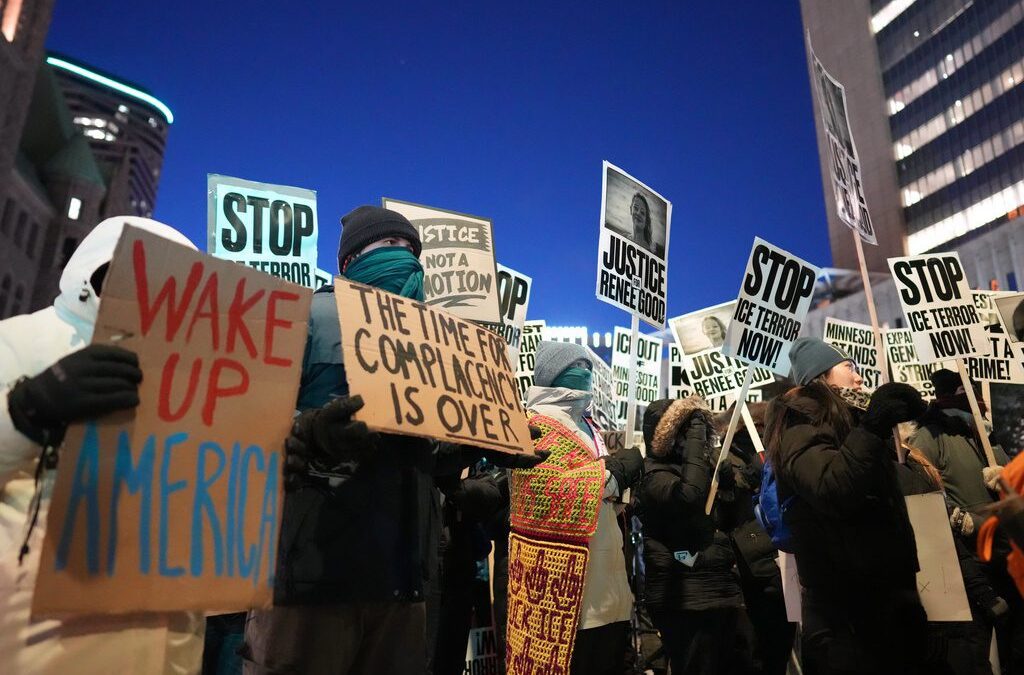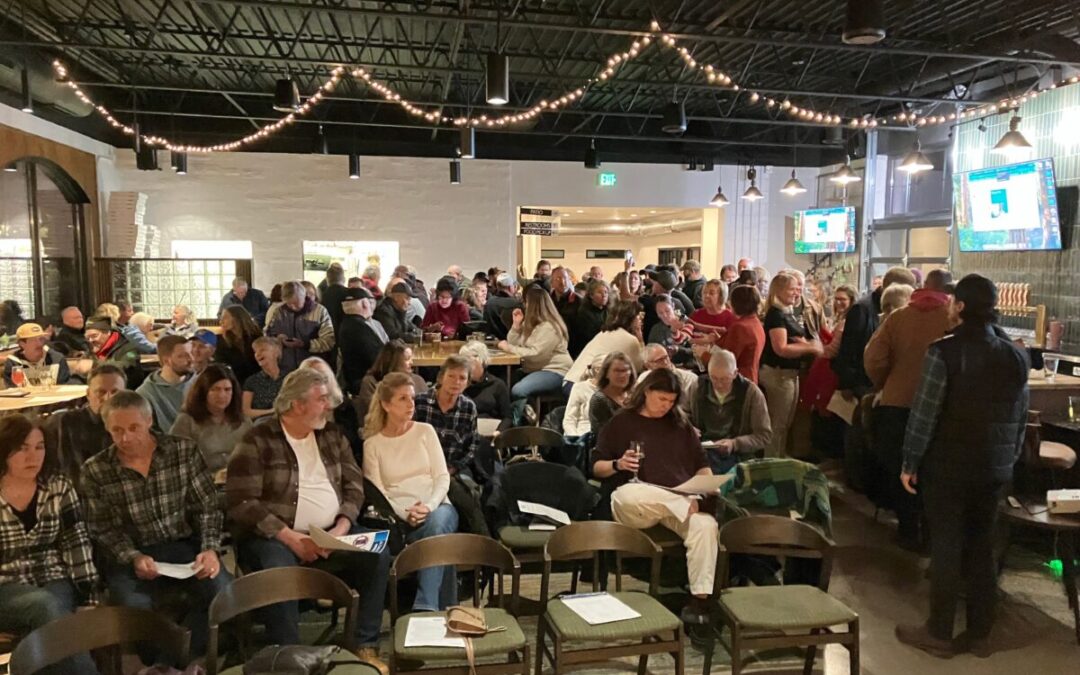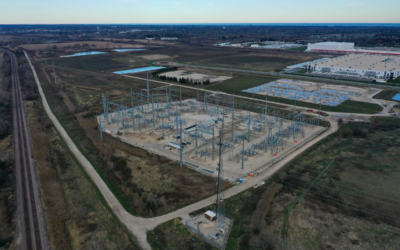
#image_title
“This sends the message that some people don’t matter as much as others in our community,” one official said.
Supporters of a controversial resolution declaring Marathon County a “Community for All” said they worry the County Board’s repeated failure to pass the measure sends a message that could prompt people of color and others to leave the community, and may prevent others from locating there.
In the days since Aug. 24, when board supervisors deadlocked on an 18-18 vote, meaning the resolution failed, County Supervisor Yee Leng Xiong said he has heard people talking about possibly leaving the Wausau area because they worry their viewpoints aren’t represented there.
“This sends the message that some people don’t matter as much as others in our community,” Xiong, who is Hmong, told UpNorthNews. “The LGBTQ+ community is hurt by this. People of color are, too. To members of marginalized communities, this means a lot to them.”
When the resolution was introduced in June 2020, its supporters assumed the measure noting the community’s inclusiveness would receive little opposition. Instead, the resolution sparked intense debate for more than a year within the community that pitted its proponents and opponents against each other in oftentimes divisive and sometimes angry discussion that attracted national media attention.
Members of Wausau’s communities of color and other marginalized groups are disappointed by the failed approval of the resolution, Mayor Katie Rosenberg said. Some are mentioning perhaps relocating to the Twin Cities or other Wisconsin locations, she said.
“This could have the impact of people not moving here in the future,” Rosenberg said. “When you Google Wausau, what comes up isn’t helpful.”
County Board Supervisor William Harris, a Wausau attorney who became the first Black person to hold elected office in Marathon County when he was elected in April 2019, called the vote against the resolution “disappointing.”
“Some people in this community are heartbroken about this,” he said of the failure to approve the measure. “This says to them their county doesn’t care for them. As a county, we’re not where we need to be.”
Xiong is one of more than 6,000 Hmong residents in Marathon County. Wausau is home to 4,700 Hmong, or 12% of its population, making it the Wisconsin city with the highest per-capita Hmong population.
Often when he talks to people in the Wausau area or those he knows from elsewhere, Xiong said he brags up his home county, hoping to bring others to live there. That could prove more difficult after the “Community for All” resolution failed, he said.
“I pride myself on being one of the biggest cheerleaders in Marathon County, especially in the Hmong community,” Xiong said. “I try to recruit people here. But I’m worried this might set us back.”
Controversial Issue
When the resolution proclaiming Marathon County as a welcoming community to all was introduced in June 2020, Xiong assumed the measure noting the community’s inclusiveness would receive little if any opposition.
“Everything in that resolution was based on ideas our county had said it was supportive of,” he said. “I simply did not expect to not expect anyone to be opposed to the idea that we’re a welcoming community. I thought this would go through within a month.”
Instead, the resolution sparked intense debate for more than a year within the community that pitted its proponents and opponents against each other in oftentimes divisive and sometimes angry discussion. Lee and other resolution supporters received angry responses to their stance on social media and sometimes in person. Conversely, people against it bristled at being portrayed as racists who don’t care about others.
Dispute about the resolution came to a head during a May 13 committee hearing at which committee members voted 6-2 against forwarding it to the full County Board. The issue even attracted a story by The New York Times describing the controversy that included racist comments by Marathon County Board Supervisor Arnold Schlei.
RELATED: Wausau’s Mayor Turns a County’s Bitter Racial Debate Into a Positive Local Expression
The committee subsequently reversed its decision and supported sending the issue to the full board by a 6-3 vote, in part because a phrase in the original resolution that included the word “equity,” which opponents viewed as divisive, was removed. Hours after that vote, the Hmong American Center in Wausau, where Xiong is executive director, received a letter with racist language denigrating the city’s Hmong population.
During last week’s board meeting, supervisors backing resolution adoption reiterated the need to make all county residents feel welcome. Doing so, they said, would not only improve community relations but would attract more people there and boost business growth.
However, other supervisors said the resolution wasn’t necessary because inclusiveness is already a part of the county’s core values and would therefore be redundant. Still others said it was divisive, and that no particular groups of people should be recognized over any other.
“I don’t feel this resolution is necessary,” Supervisor Bruce Lamont said at the meeting, noting he believes the county already supports people of diverse backgrounds.
A similar Wausau city government resolution inspired debate as well, although not as divisive as occurred in the county. Earlier this month, the Wausau City Council approved its resolution by a 9-2 vote.
“People need to know what happened with the [county] policy doesn’t speak for me, and it doesn’t speak for Wausau,” Rosenberg said. “It shouldn’t be that hard to support something that says we support people.”
Moving Forward
Harris and Xiong said despite controversy surrounding the move toward more inclusiveness, they remain committed to either moving forward with the resolution again, or to helping advance policy related to it.
But doing so won’t be easy, they said, and more education about the need for greater inclusion for different groups of people is needed for that to occur. Harris recounted being approached in a parking lot and being yelled at by someone who disagrees with the resolution.
“We’ve seen a lot of ugliness in this last year, unfortunately,” he said. “We need to find a way to come together, to get past the divisive feelings and move this county forward.”
The difficult discussions of the past 14 months surrounding inclusivity might help make moving forward on the topic possible, Harris said. Rosenberg said she hopes so. At a League of Municipalities meeting earlier this month, officials from other Wisconsin cities approached Rosenberg to talk about the “Community for All” resolution, reminding her how her home county had become a flashpoint for a phenomenon of divisiveness happening across the country.
“I don’t want people to be under the impression this is going to be easy,” she said. “This was a traumatic experience and this conversation isn’t over. We need to keep having that conversation, and do it in such a way that we are actually able to listen to each other and move in a positive direction. I hope we can do that.”

Oppose ICE? Here’s how you can take action
The moment we’re in The US Senate is currently deciding whether to approve new funding for the Department of Homeland Security (DHS), including...

WI energy bills rise as Trump marks one year in office
By Judith Ruiz-Branch On the one-year anniversary of President Donald Trump’s second term, advocates for clean energy and the environment are...

AI data center plans for Greenleaf scrapped amid community opposition
The real estate company looking to bring a data center to Greenleaf has ended its pursuit of property after residents and officials made clear they...

Wisconsinites press Congress over unaffordable health insurance
By Judith Ruiz-Branch Some Wisconsinites are looking to Congress to finish what it started this week in passing a bipartisan measure which...




